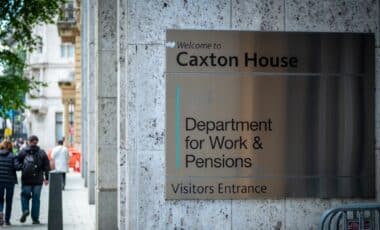The Department for Work and Pensions (DWP) is set to implement a significant change that will affect people receiving benefits. Under the new rules, the DWP will begin deducting up to 40% from certain individuals’ bank accounts to recover debts or overpayments. This decision has sparked concern, particularly among those already struggling financially, as reported by Yorkshire Live.
The New Rule and Its Impact
The new rule implemented by the Department for Work and Pensions (DWP) will allow them to deduct up to 40% from certain individuals’ benefit payments in order to recover debts or overpayments. This measure is part of an effort to address accumulated debts by benefit recipients more swiftly, ensuring that funds are recovered quickly and efficiently. However, this change has raised concerns, especially for individuals already facing financial hardship.
For many, this substantial deduction could severely affect their ability to cover essential living costs, such as rent, bills, and food. Critics of the policy argue that while the DWP’s goal is to recover debt, this approach could place undue stress on vulnerable individuals who depend on their benefits for basic necessities.
Labour Party MP Western explained: “The schedule limits regular direct deductions to no more than 40% of the funds entering the account over the period in which the bank statements have been supplied. Regulations can lower, but not raise, the maximum percentage in some or all cases.”
This means that the DWP will only be able to deduct 40% from the funds entering the account during a specific period, based on the bank statements provided. While this percentage cannot exceed the 40% limit, in some cases, regulations may allow for a lower deduction, ensuring that the recovery process is not overly burdensome.
Safeguards and Legal Protections
Despite the potential for high deductions, Western assured that safeguards are in place to prevent excessive reductions. He further clarified: “That safeguards against excessive deductions and brings the powers in line with existing DWP recovery method legislation.” The new rule also mandates that before initiating any recovery process, the DWP must give the debtor clear notice detailing the account in question, the terms of the order, and the recoverable amount.
Additionally, Western emphasized that: “The notice must also invite the debtor to make representations. It must set the time for representations to be made, which must be at least one month.” This allows the person affected by the deduction to provide their side of the story or challenge the deductions before they are implemented.
Further Considerations and Direct Deductions
In addition to the regular deduction system, the DWP has the ability to use lump sum deductions in certain cases, particularly when a person has significant available savings. Western highlighted: “We expect to use them only where someone has large available savings.” However, lump sum deductions are not the standard approach and will likely be applied in more exceptional cases.
Importantly, Western explained that: “The Secretary of State must consider those representations and uphold, vary or revoke the order. Only after any representations have been considered can the direct deduction order be made.” If no responses are received, the order may still proceed, but account holders are given an additional month to request a review, providing them with further opportunity to challenge the decision before it becomes final.
These legal protections and review opportunities are designed to balance the need for debt recovery with the rights of benefit recipients, ensuring a fair process for those affected by the deductions.









